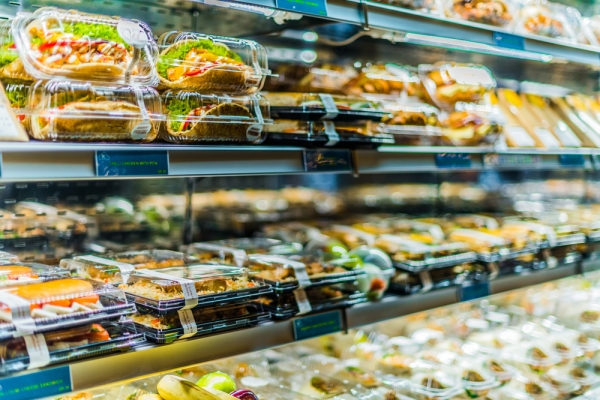New UK Legislative Requirements for the Food industry
21/10/21
Calorie Labelling
Did you know that the UK Government is introducing mandatory calorie labelling on menus for cafes, restaurants, and takeaways across the UK?
From April 2022, large businesses with more than 250 employees will be legally required to display calorie information on menus and food labels to enable the public to make healthier choices.
The new legislation will apply to non-prepacked food and soft drink items that are prepared for customers. Calorie information will need to be displayed at the point of choice for the customer, such as physical menus, online menus, food delivery platforms and food labels.
Why is this legislation coming into place?
The measures form part of the Government's broader strategy to tackle obesity and will help to ensure consumers can make more informed, healthier choices when it comes to eating food out or ordering takeaways.
The COVID-19 pandemic has highlighted the impact that obesity can have on people's health and health outcomes. It is estimated that overweight and obesity-related conditions across the UK cost the NHS £6.1 billion each year. Almost two-thirds (63%) of adults in England are overweight or living with obesity and 1 in 3 children leave primary school overweight or obese.
By requiring only large businesses to label calories on menus, it will not impact small, independent companies and will ensure those who might find the requirement more complex are not affected.
In a Public Health England survey on calorie reduction, 79% of respondents said that menus should include the number of calories in food and drinks. The recently announced Office for Health Promotion will lead national efforts to improve and level up the nation's health by tackling obesity, improving mental health and promoting physical activity.
Natasha's Law
Now in place across the UK, Natasha's Law brings essential changes to food labelling regulations for UK businesses.
The aim is to protect the estimated 2 million people diagnosed with food allergies in the UK by preventing severe reactions and deaths caused by a lack of clarity and insufficient labelling.
The facts
On average, ten people in Britain die every year from food-induced anaphylaxis. It's believed that out of a further?1500 asthma-related deaths, a significant percentage could have been triggered by food allergies. For high-risk individuals, trace amounts of a food allergen can trigger fatal or near-fatal symptoms.
Who is affected?
All food businesses that sell food pre-packed for direct sale are affected and this could be Pubs and Restaurants as well as Cafes and Delis, etc. Especially with Covid and restrictions, more businesses have added PPDS foods to their offering as an additional revenue stream. Although not directly affected by Natasha's Law, all pubs, restaurants and takeaways should also provide allergen information for their customers.
Which allergens MUST be labelled?
- Celery
- Cereals containing gluten (oats and barley)
- Crustaceans (crabs, lobster, prawns)
- Eggs
- Fish
- Milk
- Lupin
- Molluscs (oysters and mussels)
- Mustard
- Sesame
- Peanuts
- Soybeans
- Sulphur dioxide and sulphites (for concentrations above ten parts per million)
- Tree nuts (almonds, walnuts, brazil nuts, hazelnuts, pecans, cashews, macadamias, and pistachios)
The reforms cover labelling requirements for foods prepared and packed on the same premises from which they are sold – such as a packaged sandwich or salad made by staff earlier in the day and placed on a shelf for purchase.
Previously these foods, known as pre-packed directly for sale, were not required to have product labels that provided information on the full ingredients or the allergens contained.
These changes will apply to businesses in England, with similar arrangements expected to follow in the devolved nations to provide a UK wide approach to protecting consumers.
To know more about how SATO can help you to be in compliance with this new regulation, meet us at the Restaurant & Takeaway Innovation Expo.











